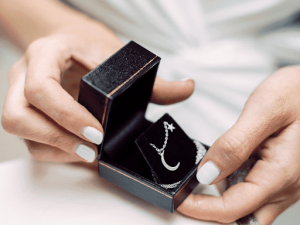You’ve likely experienced that sinking feeling when your carefully chosen anniversary gift falls flat, despite your best intentions. While conventional wisdom suggests it’s simply about knowing your partner’s preferences, psychological research reveals a far more complex landscape. Your gift’s success actually depends on hidden factors like attachment patterns, cognitive processing styles, and emotional triggers that operate beneath conscious awareness. Understanding these psychological mechanisms can transform your approach to gift-giving and explain why some gestures create lasting memories while others fade into disappointment.
The Role of Attachment Styles in Gift Reception and Emotional Response
When you select an anniversary gift, your partner’s attachment style fundamentally shapes how they’ll receive and interpret your gesture. Securely attached partners typically appreciate thoughtful gifts regardless of cost, viewing them as expressions of love. Anxiously attached individuals may overanalyze your gift for anniversary choice, seeking reassurance about relationship security. They’ll often prefer grand gestures or meaningful tokens that confirm your commitment. Avoidantly attached partners might feel uncomfortable with overly sentimental gifts, preferring practical items that don’t trigger emotional vulnerability. Understanding these patterns helps you choose gifts that align with your partner’s emotional needs rather than creating unintended anxiety or disconnection.

Love Languages as Psychological Frameworks for Meaningful Gift Selection
Since Dr. Gary Chapman introduced the five love languages concept, you’ve gained a powerful framework for understanding how your partner receives and processes affection. When you align anniversary gifts with their primary love language—whether physical touch, words of affirmation, acts of service, quality time, or receiving gifts—you’re tapping into their fundamental emotional wiring. Research shows that couples who communicate through compatible love languages report 37% higher relationship satisfaction. If your partner’s primary language is quality time, expensive jewelry won’t resonate like planning an uninterrupted weekend together. Understanding their psychological blueprint transforms gift-giving from guesswork into targeted emotional connection.
Cognitive Biases That Influence How Anniversary Gifts Are Perceived and Remembered
Beyond understanding your partner’s love language, your brain’s built-in processing shortcuts significantly shape how anniversary gifts are interpreted, valued, and remembered years later. The peak-end rule means your partner will remember gift experiences based on their most intense moment and final impression, not duration or cost. Anchoring bias causes the first gift you give to set expectations for all future presents. The availability heuristic makes recent, memorable gifts seem more meaningful than forgotten thoughtful gestures. Understanding these cognitive patterns helps you craft anniversary gifts that align with how memory actually works, creating lasting positive associations.
The Impact of Relationship Stage and Individual Personality Traits on Gift Effectiveness
Although cognitive biases affect everyone similarly, your relationship’s maturity level and your partner’s unique personality traits create distinct filters that determine which gifts will truly resonate. Early-stage couples often appreciate novelty and shared experiences that build connection, while established partnerships value personalization and thoughtful gestures reflecting deep understanding. Your partner’s Big Five personality traits significantly influence preferences: extroverts favor social experiences, conscientious individuals appreciate practical gifts, and those high in openness embrace creative surprises. Research shows mismatched gift-giving occurs when you project your own preferences rather than considering your partner’s authentic personality and your relationship’s developmental needs.
